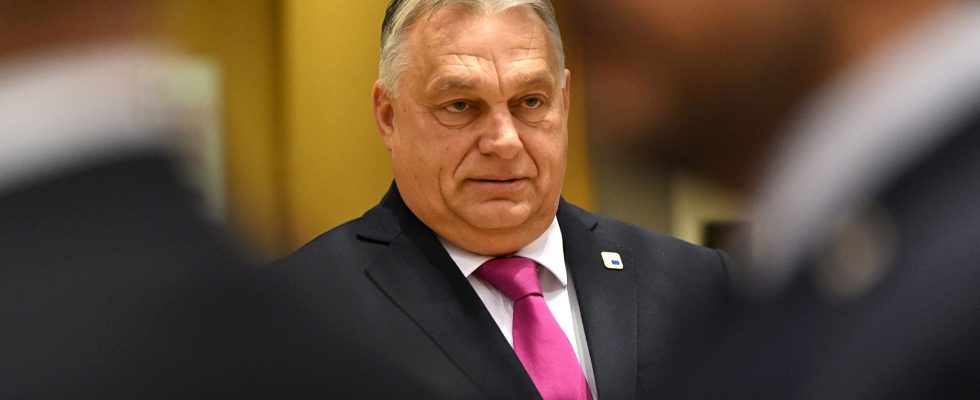It is Viktor Orban’s lethal weapon to win the European and municipal elections next June. Launched by the Hungarian executive on February 1, the Sovereignty Protection Office – an emanation of the “sovereignty law”, passed in Budapest on December 12 – has a clear mission: to identify the risks of foreign interference. Violators face up to three years in prison.
This initiative is fiercely reminiscent of Russian legislation from 2012 on “foreign agents”, which targets organizations, opponents and journalists accused of acting on orders from the West. Already, Hungarian detractors fear a muzzling of the opposition, civil society and the last media critical of power. This is not the first time that such an attempt has occurred. In April 2017, a law against NGOs receiving external funds targeted (already) “foreign influences”. But Budapest had to repeal the text, overturned by the Court of Justice of the European Union.
Seven years later, do it again. On January 18, a European resolution demanding greater severity towards Hungarian abuses was issued. Finnish center-right MEP Petri Sarvamaa (PPE), co-rapporteur of the text, fears that this controversial law on sovereignty and this Protection Office “will open the way to new violations of the rule of law and fundamental rights , lack of adequate legal control”.
“Issue recommendations”
At the head of this “agency for the defense of sovereignty”, Tamas Lanczi, son of an ideologue from Viktor Orban’s Fidesz party. Among his service records: speeches written for Orban in the early 2000s, a position as a political analyst within two pro-government institutes and the management of a London consulting firm founded by the two communicators close to Orban (Arpad Habony and the late Arthur J. Finkelstein, guru of anti-Soros campaigns). But also, a list of “George Soros mercenaries” that he published in April 2018, when he was at the head of the magazine Figyelőtaken over by the authorities.
“The Sovereignty Protection Office is not going to carry out an investigation, because it is not a secret service, a police force or a public prosecutor’s office. On the other hand, it is our duty to make recommendations to Parliament or from the government if we notice a dangerous phenomenon”, explains Tamas Lanczi in the conservative daily Magyar Nemzet. “Hungarians have the right to know clearly who are trying to manipulate their opinion and how they do it,” he adds.
The grant Orban asked for from Soros
Champion of sovereignty, the Orban government is however poorly placed to preach it. Viktor Orban, a dozen leading figures from Fidesz and the party received Soros scholarships when they started in the liberal camp at the end of the 1980s.
Having become conservative, Fidesz then pocketed generous aid from the Konrad Adenauer foundation associated with the German CDU. Later, Marine Le Pen benefited from a loan of 10.6 million euros from the Hungarian bank MKB, friend of Orban, in order to finance her presidential campaign in 2022.
In the Balkans, Viktor Orban also finances the Serbian republic of Bosnia led by the separatist Milorad Dodik, in order to help it establish its regional influence. More recently, Hungary was involved in the return to office of Slovak populist Robert Fico, with whom Orban hopes to form a bloc in Brussels. The Orban cabinet finally entered the Polish elections last fall by posting anti-migrant videos on YouTube for the local public and by mobilizing advisors to the conservative PiS, ousted from power after eight years of reign. .
“A knife blade stuck in the table”
“The government has no intention of applying the spirit of the sovereignty law to itself. This text is only a new legal instrument to curb political opposition, intimidate independent NGOs and threaten the critical press”, denounces the journalist Tamas Koncz, of the magazine Magyar Hang, who compares the whole thing to “a knife blade stuck in a table”. Understand: the weapon may not be used against its possible targets, but its presence is enough to arouse fear and self-censorship to avoid trouble.
.
